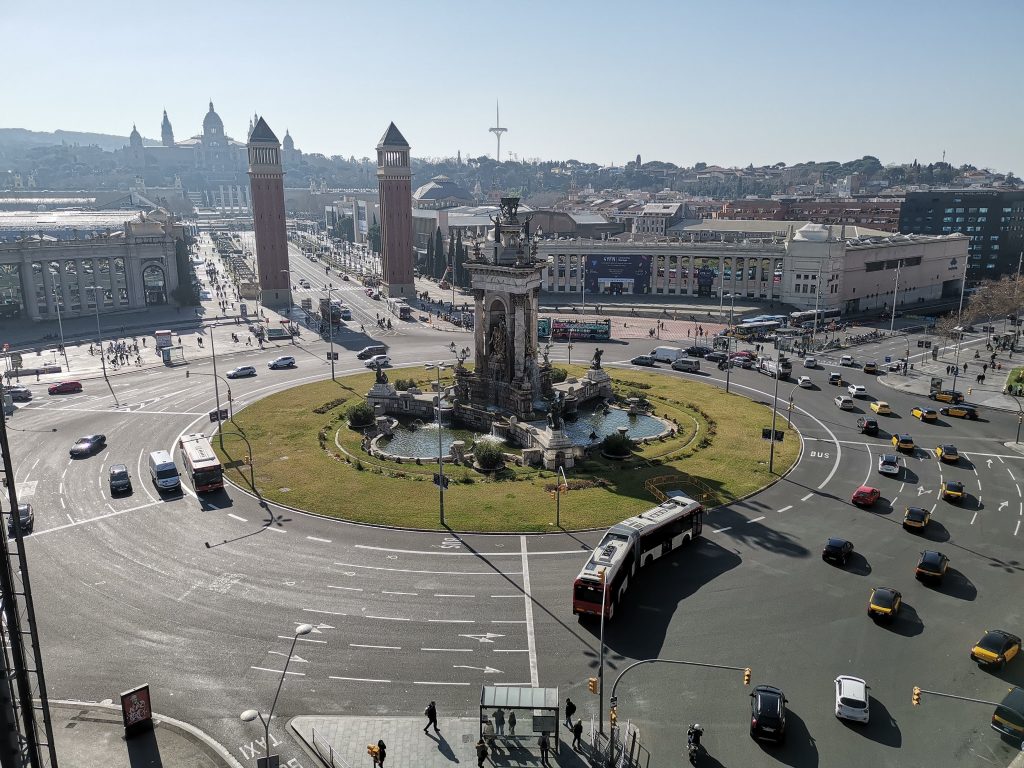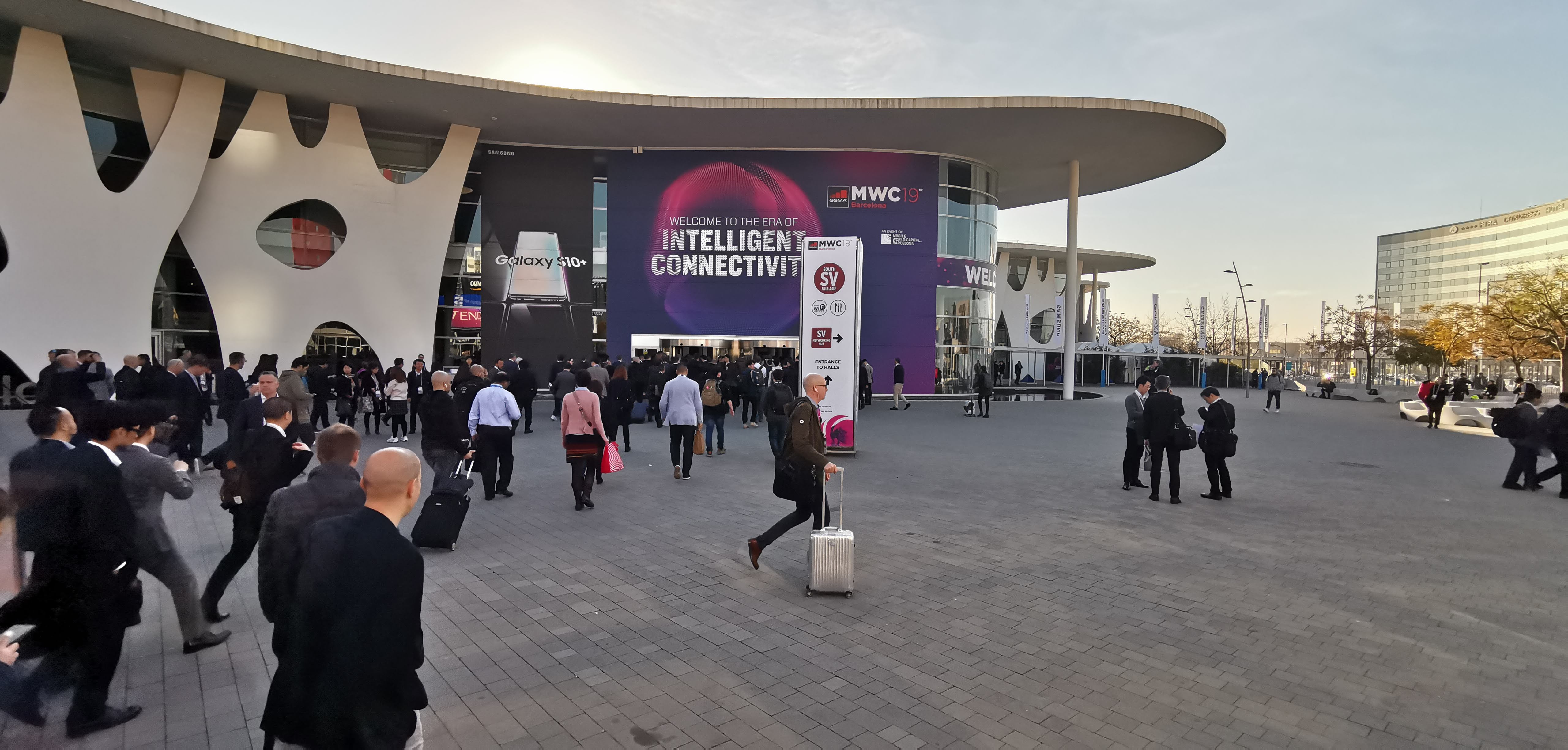This week saw the cancellation of Mobile World Congress 2020, because of fears of Coronavirus which has just two cases in Spain, compared to 22 million flu-type illnesses in the US alone leading to 12,000 deaths. Plenty of things spread faster than Coronavirus has, including the flu, fear, uncertainty, and doubt.
As a result, the world’s largest annual tradeshow event for mobiles isn’t being held in 2020, and – in my view – there’s a significantly reduced chance that it’ll be successful in 2021, and going forward too.
MWC is important. It’s about the only international tradeshow where mobile vendors large and small can network in the one place and do deals with international carriers, and it’s where a lot of developments affecting smartphone consumers take place as well. I’ve long said that MWC sets the trend for the year ahead, and without an MWC this year, where’s that trend going to take place?
As with many journalists, MWC has been a firm favourite of mine for years, and not being able to go this year is disappointing, and all the moreso for journalists who would’ve travelled this year to their first MWC. It’s a favourite of industry players too, and a huge loss to the industry as a whole.
It isn’t just the mobile industry left reeling, though. The cancellation of this tradeshow will have an impact on GSMA itself, future MWC shows, and – perhaps most importantly – on the local economy in Barcelona and Catalonia which depends on the influx of some $500 million each year the show runs. For those vendors who’ve spent big on their MWC plans, they face the prospect of losing their investment, as insurance is unlikely to cover their losses – remember, Spain hasn’t declared any kind of health emergency which would justify the cancellation of the show.
It wasn’t cancelled for health reasons, after all, but fear.
What do we lose as consumers?
Superficially, consumers don’t lose a lot by MWC no going ahead; after all, every device, every piece of software and every innovation which was to be launched at MWC will be launched somewhere else, at some other time. However, superficial answers don’t help.
Anything launched at MWC has a significantly higher chance of hitting the media; there’s thousands of journalists milling around, and they’re looking for the next big story to write. This means – amongst other things – that you’re likely to read what journalists think about new products, having held, touched and used them. These impressions matter – these are physical objects, after all, and it’s important to know what they offer on paper as much as what they offer when you’re actually using them.
Many products sound like good ideas until they’re used, and people realise they’re actually awful. I can think of many products launched in the last year alone that would seem like much better products if people hadn’t actually touched them. I won’t name them here.
Equally, locally relevant information for you becomes harder to find. It’s all well and good in Australia which reads and consumes English language news, in a market where we often see most international products actually launched.
What if you’re not from an English speaking country? What if you mightn’t actually get much international product launched in your home country? That journalist of yours who attends MWC, who regularly writes about phones and tells you what’s good, what’s not and what’s coming … well he/she won’t be able to do that this year, meaning you mightn’t get the information you need about products you’re interested in.
By not having access to a tradeshow which quite literally sets the trends and pace for the year ahead, we’re flying a little blind. We can’t predict what’s coming as easily. We can’t as easily see what product manufacturers are working on. This makes it hard to plan your purchases – and in smartphone land, where things cost a lot, that can be a big challenge.
We also lose the fun. We can’t find weird, quirky new products to tell you about, and filtering those from the volumes of email we receive daily can be a significantly challenging task.
The industry loses too
These last points are incredibly relevant for industry, too. It’s very expensive for smaller manufacturers to fly around to meet potential customers. Attending MWC – one flight, one hotel stay – is a great way to put your wares in front of as many industry-relevant buyers as possible.
If you’re doing this by yourself, you lose access to more than 90% of your potential customers, and to reach any of them, your expenses increase exponentially. Travel is expensive, and it takes a lot of time.
Lots of money and lots of time are two things that smaller businesses often don’t have. MWC made that easier to deal with. No MWC makes it almost impossible.
There’s also the knock on effects. Manufacturers will have spent a lot of money to get their products ready, to get their show presence developed, on hospitality and entertainment, on travel and accommodation.
Many of these costs are probably now thrown away, and few are likely to be refundable or covered by insurance. Some smaller manufacturers could be in a world of trouble because of MWC’s cancellation. One hopes that not too many fold.

What does Barcelona lose?
Lots. As noted above, MWC brings in almost half a billion US dollars to the local economy, and now a huge percentage of that won’t be coming. Anyone who’s been in Barcelona around MWC time can attest, the impacts are everywhere:
- Corner stores do a roaring trade
- Restaurants are often full, whether in the heart of the city or on the outer edges
- There’s beer everywhere – the tourists drink a lot
- Everyone sells – even the street sellers flock to Barcelona for MWC week, hoping to make a quick dollar
- Taxi drivers are driven off their feet – I’ve never seen a city with so many taxis full to the brim
Without MWC travellers coming, much of this is lost. Flights and hotel bookings are cancelled, often refunded. People who aren’t in Barcelona don’t need to take taxis, buy food, drink beer, or buy a t-shirt. In fact, they don’t need anything at all.
Everyone from single-income families who live off taxi fares dad makes through to chain restaurants and hotels will lose money because MWC isn’t in town.
Now, Barcelona hasn’t always been the best host to MWC – being on that world stage makes MWC time a great time to make a point, with train drivers often striking around the same time, and protests (particularly around the important issue of Catalonian independence) run rife around this time of year too. These can be difficult to navigate as a tourist, and hard to avoid.
There are reasons why MWC might look elsewhere in future, but the impact on Barcelona now is much bigger.
Can MWC come back from this setback?
One wonders. For many years, now, MWC has been a mainstay of the yearly tech calendar, and its ongoing success seemed almost a given. The possibility that an MWC could be cancelled seemed so remote as to be laughable .. and yet here we are.
For its part, GSMA says that MWC will be back for 2021.
But there’s a lot of assumptions in this. For one, MWC is a huge investment for everyone that goes – it costs a lot to travel there, it costs a lot to exhibit, and many of these costs are incurred well before the show is 100% confirmed – it’s done on the basis of the assumption that the show will go on.
2020 has shown us that the show can be cancelled, at very late notice (little more than a week before it was to start). If you think this won’t shake everyone’s confidence next year, then you’re nuts. Lots of people – companies, individuals, journalists, enthusiasts and analysts – will have lost considerable amounts of money to attend a conference that’s no longer going ahead, and that only needs to happen once for confidence to be shaken.
In GSMA’s defence, it has clearly identified Coronavirus as the reason for the show’s cancellation, and unless there’s some other wacky bug going around this time next year, you’d imagine the chances of the show being cancelled are less.
However, it’s been shown that it can happen. Now, in 2020, with no MWC to use, a whole swathe of companies, phone makers and more are going to find other ways to get their products out there. If they find the success they’re looking for, perhaps they won’t bother with MWC 2021 … after all, if you can spend less, and face less risk of attending a show that may or may not go on, why not do it some other way?
And that is ultimately MWC’s real problem. If you cancel, and force all your participants to find other ways of doing things, they might just do that and not come back next year.





Sorry to say this but the author hasn’t got a grip about the current situation. There are things that can happen at any time which will disrupt your plans sometimes in life. MWC has made the right decision. We don’t react when things are at vicinity. It’ll be too late by then. We see the world trend, big events are being postponed if not canceled. Then a lot of presenters are coming from China and possibly other affected cities. If they cannot be there physically, due to travel restrictions, the show is half empty already. Finally, probably many attendees won’t… Read more »
If it was a trade show in Wuhan, I’d understand.
But Barcelona has no COVID-19 virus. That can’t be said for Australia’s biggest cities, which all have multiple virus patients in the hospitals.
So, for all those who have arrived in Barcelona for MWC, stay there, as it’s a good place to avoid the virus.
It’s also just a lovely city and one well worth exploring!
Well this is myopic, considering it is about containing the potential of a larger outbreak. Seeing coronavirus has a 14 day incubation period before symptoms show but is still contractable, it makes sense for companies in affected countries to not farm their staff out to other parts of the world for solely commercial reasons, and at some point the attendance rate reduces so much as to not make the show viable. It’s not about fear, it’s about level-headed, reasonable common sense.
No, it’s not common sense.
Travelling from Australia or NZ, your plane has to stop in another country on the way. But all of Asia, all of Europe and all of North America can fly to Barcelona in a single hop. Nobody has caught the COVID-19 virus on a plane. Nobody. And there are millions of people flying every day. This is crazy hysteria.
We now see that the incubation period can be 28 days and that it is airborne.
With Italy being hit hard and South Korea it would appear cancelling was a very sensible thing indeed.
As to nobody catching on a plane, how did Les know that ? Just look at Diamond Princess. 7 people now have the virus whilst from their time in isolation.